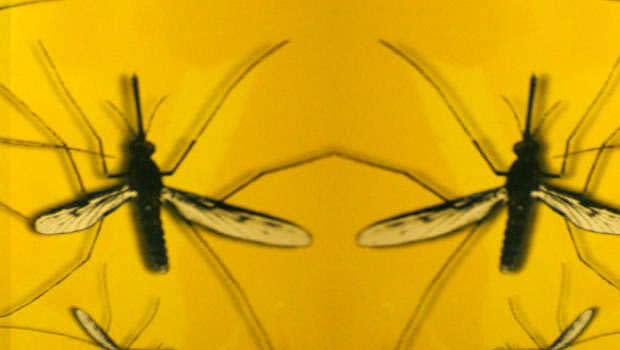 Science and Weather
Science and WeatherWhat would the world be like without mosquitoes?

It’s summer. It’s nice out.
Just as you’re starting to really enjoy it, you hear a high, whining, familiar buzz in your ear.
Two things are almost certainly about to happen. You’re about to be bitten by a small, blood-sucking insect – and you’re about to whack yourself in the side of the head.
Mosquitoes. Sigh.
Wouldn’t it be nice, we’ve all wondered, if these buzzing, biting, bliss-busting bugs were all just blown to bits?
What would the world be like, if every last mosquito was gone?
“It’s one of those unusual things,” Mike Jenkins, mosquito expert and biological sciences technician for the City of Edmonton, tells Yahoo News.
“Ecologists have taken a look at that a few times, and oddly enough it seems like there might not be an ecological disaster if they were gone. There’s not really anything – that we know, anyhow – that really depends on them. There’s no plants that absolutely require a mosquito to pollenate them. There’s no other species that specifically require mosquitoes to prey on.”
Jenkins notes there are over 3,500 species of mosquitoes worldwide. And with the notable exceptions of Iceland, Fiji and the Antarctic – they’re everywhere!
Anywhere there’s standing water – even for a short period of time – you’re liable to get bitten.
About the only life forms that could be wiped out if all the mosquitoes vanished? Dread diseases like malaria, dengue and yellow fever.
“I think probably the largest ecological role mosquitoes have is keeping a number of populations – including possibly humans – in check,” Jenkins says, darkly. “But we’ve largely overwritten that control anyway. Even at the risk of overpopulation, we’ve generally gone towards controlling disease, rather than letting it take us out.”
These hated little pests are astonishingly versatile. They’re efficient and fast enough to breed in bird baths – and also tough enough to endure fierce, persistent droughts.
“In a drought, they go and lay their eggs next to a dried-up pond, and actually let the eggs dry out. The next time the pond fills up, that activates the eggs. So even in the worst droughts across the prairies, those mosquito eggs are just sitting there, resting. And they can sit there for up to a decade.
“We could go through and kill every single mosquito in Canada, and think that we’re completely done. Ten years later we get a rainstorm, and the mosquitoes are back.”
Jenkins freely admits he respects mosquitoes. He spends a lot of time with them, and knows their ways and habits well. If there were a button – something he could press, and all the mosquitoes, everywhere on Earth, would be lost and gone forever – would he do it?
“I’m not sure that I would,” he says, with a pause and a bit of a sigh.
“I just think that every time we’ve decided that we know everything about some ecosystem, and we can meddle with it and nothing’s going to happen, it never turns out well. I imagine that there’s probably something that we don’t understand, that when we hit that button, it will make things terribly go wrong.”


